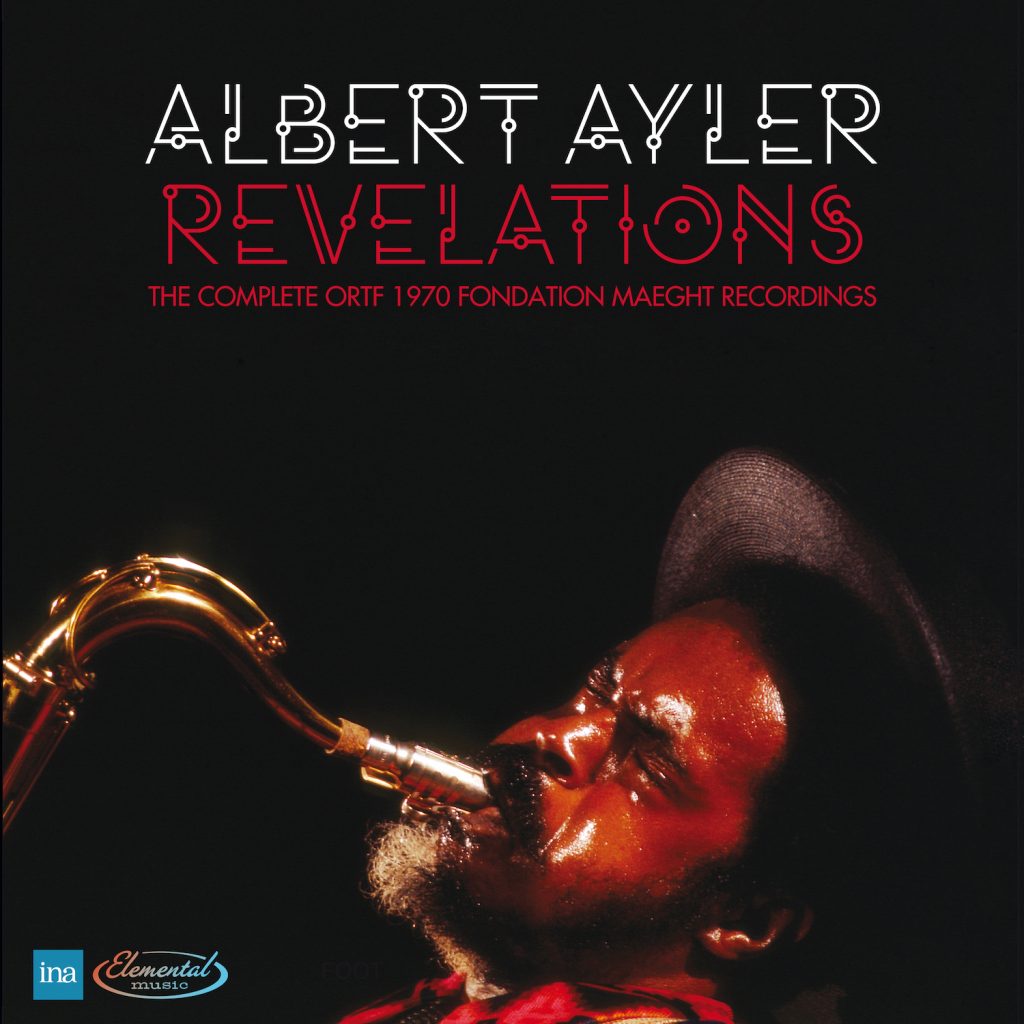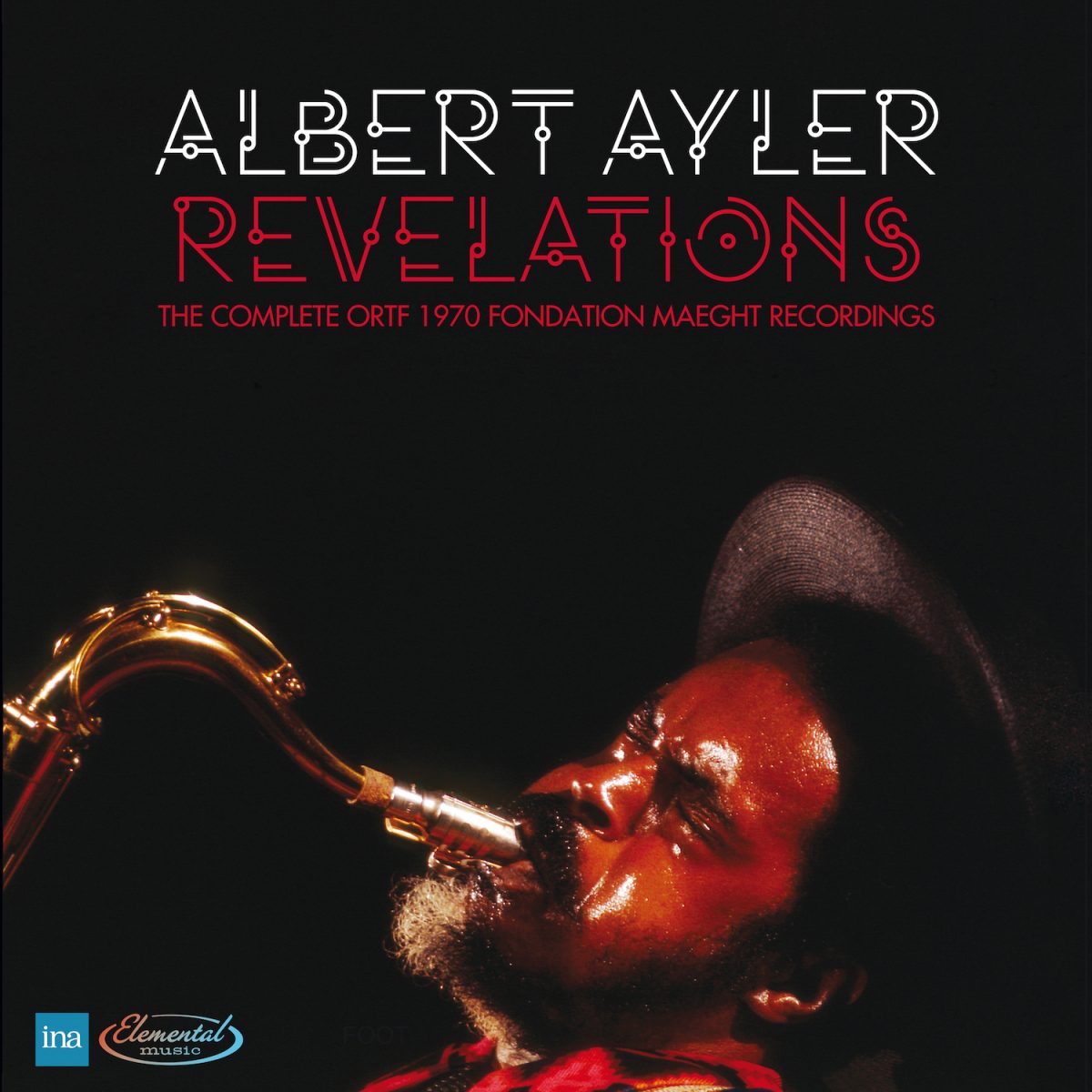
There’s no mistaking jazz saxophonist Albert Ayler’s influence. The breadth and power of his tone on the tenor are unparalleled, and his musical concept shifted the focus from bebop technique to direct communication via melody and pure sound. A half-century after his death, musicians are still reckoning with those lessons, and it’s usually pretty easy to tell when they’re doing so.
But for someone whose influence was so profound, Ayler’s career was actually quite short. Not quite eight years separate the making of his first LP in Sweden in autumn 1962 and his final concert recordings from the Fondation Maeght in Saint-Paul de Vence, France, during the summer of 1970. Revelations: The Complete ORTF 1970 Foundation Maeght Recordings (available as a quadruple CD and a five-LP Record Store Day vinyl edition) presents the entirety of those concerts in southern France for the first time.
While short, Ayler’s musical timeline could still be subdivided into distinct phases. His early Scandinavian recordings introduced his instrumental voice, which combined the open-hearted melodies and ecstatic vocalizing of the African-American church with the punchy directness of swing jazz and R&B. But they were held back by rhythm sections that didn’t catch Ayler’s drift the way the accompanists on his first LPs for the ESP-Disk label (which swapped conventional swing for a more abstract pulse) did. Once Ayler was joined by trumpet-playing brother Donald, the bands grew bigger, and march rhythms imposed more overt forms upon their improvisations. After he signed to Impulse! Records, Ayler’s experiments with singing and rock elements alienated old fans without winning many new ones; his 1970 trip to France came shortly after Impulse! dropped him.
The band that Ayler brought to France included co-vocalist and saxophonist Mary Parks, known on record as Mary Maria. She was also his wife, business manager and co-composer of many of his later tunes. Ayler also invited keyboardist Call Cobbs (who had recorded with him before) and a pick-up rhythm section of bassist Steve Tintweiss and drummer Allen Blairman. Cobbs missed the plane (and thus the first concert on July 25), but he was present two nights later; his presence gives a more grounded feeling to the second show’s music.
About half of the material from the French concerts has been issued and reissued under various titles by Shandar, Blu Jazz, RCA, Water and ESP-Disk. Revelations, which is sourced from a recording made by French radio/television (ORTF), includes 14 additional pieces of music. Some of them are looser renderings of tunes from the Impulse! albums, but a significant number are improvisations conceived on the spot, which enrich understanding of Ayler’s late-period music.
For a start, Parks was more of a participant than on earlier volumes, which had been cherry-picked to focus on already-released tunes and Ayler’s most extroverted playing, let on. While Parks’ musicianship is not at the same level as Ayler’s, he seems to relish the opportunity to work around or comment upon what she blows and sings. The improvised tracks, which are all named “Revelations,” often ease back on the intensity without losing sight of the transcendental quality of Ayler’s music. The elastic rhythms of Tintweiss and Blairman sound more appropriate to these pieces than the structured songs.
Revelations isn’t the place to start with Ayler’s music. But if you’ve already digested the ESP-Disk recordings and 1967’s Live In Greenwich Village, it gives insight into both his roots and where his music might’ve gone had Ayler not died by drowning in November 1970.
—Bill Meyer







